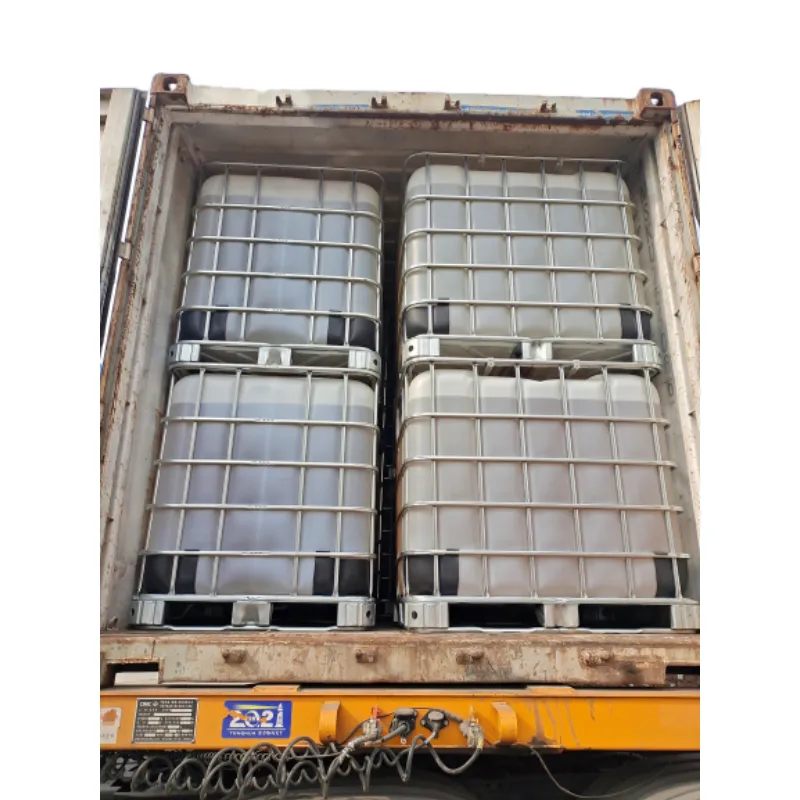
trichloroisocyanuric acid
Trichloroisocyanuric Acid An Essential Compound in Water Treatment
Trichloroisocyanuric acid (TCCA) is a powerful and versatile chemical compound widely used in water treatment, sanitation, and disinfection. With the chemical formula C₃Cl₃N₃O₃, TCCA combines chlorine with isocyanuric acid, making it an effective pool sanitizer and a critical component in various industrial applications. This article explores the properties, uses, and safety considerations of trichloroisocyanuric acid.
Properties of Trichloroisocyanuric Acid
Trichloroisocyanuric acid appears as a white, crystalline solid with a strong chlorine-like odor. It is available in granular and tablet forms, making it easy to handle and use in different applications. TCCA is highly soluble in water, releasing chlorine upon dissolution. This property makes it particularly useful in maintaining clean and safe water, especially in swimming pools and spas.
The stability of TCCA under various environmental conditions is another advantage. Unlike other chlorine compounds, TCCA remains effective in a wide range of pH levels, making it suitable for various water conditions. Additionally, it is less volatile than gaseous chlorine, reducing the risk of hazardous fumes during transportation and application.
Uses in Water Treatment
One of the primary uses of trichloroisocyanuric acid is in the disinfection of swimming pools and spas. The compound is highly effective at killing bacteria, viruses, and algae, ensuring water remains safe for recreational use. When added to pool water, TCCA dissolves slowly, providing a consistent release of chlorine over time. This slow-release mechanism helps maintain a stable level of disinfectant, which is crucial for effective sanitation.
In addition to recreational water treatment, TCCA is also used in municipal water systems. Many municipalities incorporate TCCA into their water treatment processes to ensure that potable water is free from harmful pathogens. This is particularly important in areas where water sources may be contaminated, as chlorination helps to eliminate disease-causing microorganisms.
trichloroisocyanuric acid

Industrial Applications
Beyond water treatment, trichloroisocyanuric acid serves various industrial purposes. It is commonly employed in the production of bleach and is utilized in the textile and paper industries for bleaching processes. Additionally, TCCA is used in the oil and gas sector for drilling fluid disinfection and in agriculture for soil treatment and disinfection of irrigation systems.
Safety Considerations
While trichloroisocyanuric acid is an essential tool for water disinfection, it is crucial to handle it with care. TCCA is a strong oxidizer and can pose health risks if not managed appropriately. It can cause respiratory irritation if inhaled and may lead to skin or eye irritation upon contact. Therefore, it is essential to use personal protective equipment, such as gloves and masks, when handling the compound.
Proper storage is also critical to prevent unwanted reactions. TCCA should be stored in a cool, dry place away from organic materials, acids, and other incompatible substances. Following safety guidelines and manufacturer recommendations can help minimize risks associated with its use.
Conclusion
In summary, trichloroisocyanuric acid is a vital compound in water treatment and sanitation. Its effectiveness as a disinfectant, combined with its stability and versatility in various applications, makes it an indispensable part of maintaining clean and safe water. However, like all powerful chemicals, it must be handled responsibly to ensure safety for both users and the environment. As water safety continues to be a global concern, TCCA will undoubtedly remain a key player in the fight against waterborne diseases and the promotion of public health.
-
Pure Sodium Dichloroisocyanurate Dihydrate | Powerful DisinfectantNewsAug.29,2025
-
Industrial Chemicals: Quality & Purity for Every IndustryNewsAug.28,2025
-
Nitrile Rubber Honoring Strict Production StandardsNewsAug.22,2025
-
Aspartame Ingredients Honoring Food Safety ValuesNewsAug.22,2025
-
Fertilizer for Balanced Plant NutritionNewsAug.22,2025
-
Cyanide Gold Processing with High Purity AdditivesNewsAug.22,2025
-
Formic Acid in Textile Dyeing ApplicationsNewsAug.22,2025
Hebei Tenger Chemical Technology Co., Ltd. focuses on the chemical industry and is committed to the export service of chemical raw materials.
-

view more DiethanolisopropanolamineIn the ever-growing field of chemical solutions, diethanolisopropanolamine (DEIPA) stands out as a versatile and important compound. Due to its unique chemical structure and properties, DEIPA is of interest to various industries including construction, personal care, and agriculture. -

view more TriisopropanolamineTriisopropanolamine (TIPA) alkanol amine substance, is a kind of alcohol amine compound with amino and alcohol hydroxyl, and because of its molecules contains both amino and hydroxyl. -

view more Tetramethyl Thiuram DisulfideTetramethyl thiuram disulfide, also known as TMTD, is a white to light-yellow powder with a distinct sulfur-like odor. It is soluble in organic solvents such as benzene, acetone, and ethyl acetate, making it highly versatile for use in different formulations. TMTD is known for its excellent vulcanization acceleration properties, which makes it a key ingredient in the production of rubber products. Additionally, it acts as an effective fungicide and bactericide, making it valuable in agricultural applications. Its high purity and stability ensure consistent performance, making it a preferred choice for manufacturers across various industries.





